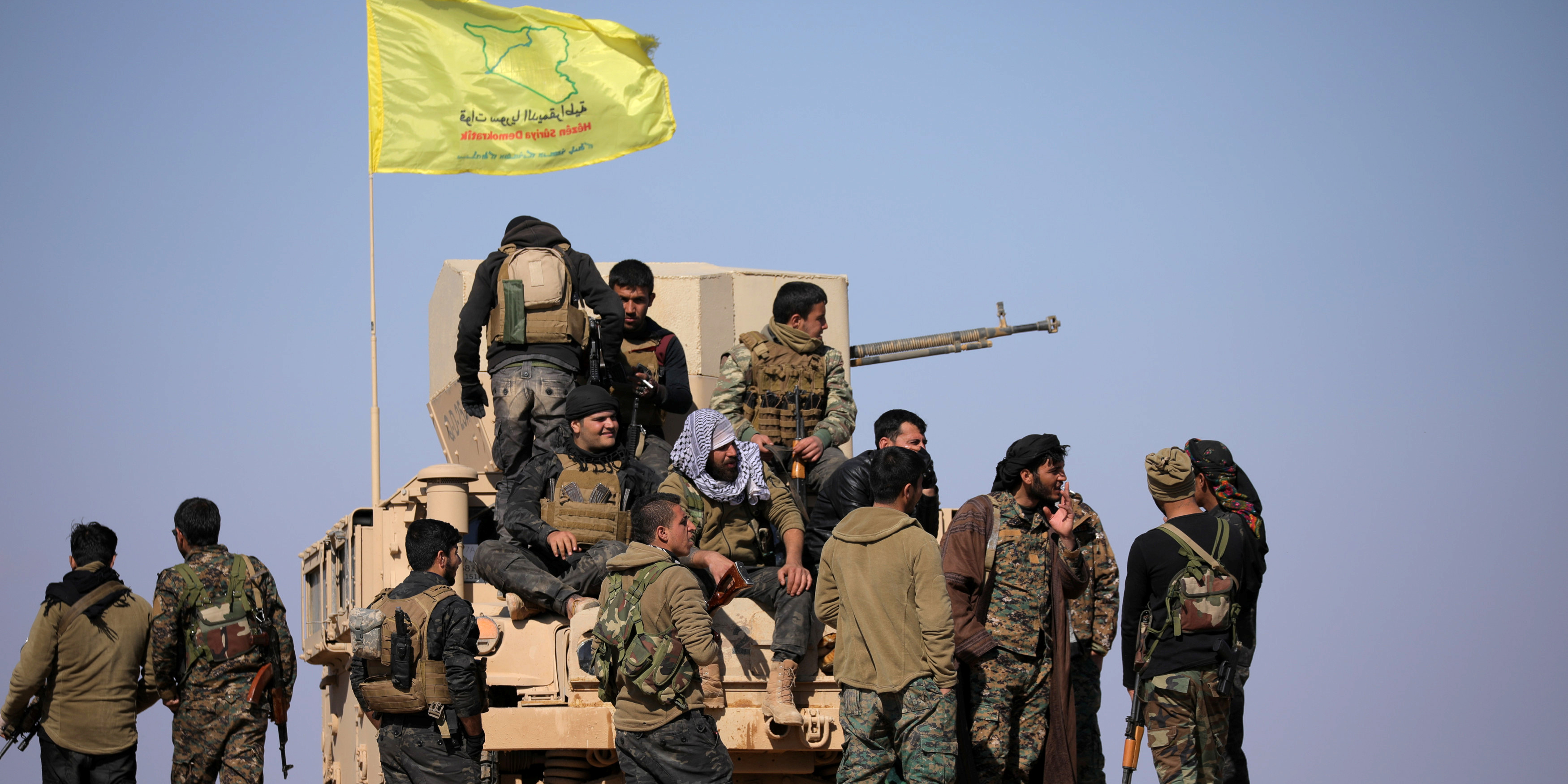- The US’s decision to pull out of northeastern Syria, leaving its partners, the Syrian Democratic Forces, to fight a Turkish incursion into the area was “a rotten policy decision” that undid US gains against ISIS and would have long-term consequences for the US, on veteran of anti-ISIS operations told Insider.
- Insider spoke to three US veterans of the war on ISIS. One of them said, “The thing that made me most angry, we turned our back on our allies.”
- Trump’s announcement last week to pull US troops from a small part of Kurdish-controlled northeast Syria opened the door for a Turkish incursion, and has led to chaos, causing tens of thousands of civilians to flee the area. There are reports of war crimes being committed against civilians and captured soldiers.
- Visit Business Insider’s home page for more stories.
Veterans of the war on ISIS in Syria and Iraq are speaking out against President Donald Trump’s decision to abruptly pull troops out of northeastern Syria last week, saying the decision was “rotten” and “forfeited American honor.”
Wes Bryant, a retired airman and co-author of “Hunting the Caliphate: America’s War on ISIS,” told Insider that Trump’s decision to pull US forces out of northeastern Syria last week was “a betrayal, at least of people with whom we were fighting a common enemy,” and called the decision “a strategic blunder.”
Bryant was part of planning the initial airstrikes against ISIS in Iraq. He told Insider he disagreed with the decision for a number of reasons, but “the thing that made me most angry, we turned our back on our allies,” the Syrian Defense Forces (SDF), who partnered with the US against ISIS. The SDF grew from the YPG, the Kurdish defense forces in Syria that Turkey considers a terrorist group.
Trump’s decision to pull US forces from northeastern Syria led the way for ground and air assaults by Turkey, which aims to create a “buffer zone” against the Syrian Kurds. Since the invasion began a week ago, tens of thousands of civilians have fled northeastern Syria, 42 have died and 123 have been wounded, according to the International Rescue Committee,
"It feels like we're abandoning our closest ally in the fight against ISIS, and we're abandoning them to a fate that is going to end very poorly for them," Marty Palmer, a retired Army Special Forces soldier who served alongside the SDF in Syria, told The Washington Post on Tuesday.
Not only did the US abruptly drop a crucial partner in the fight against ISIS, in so doing, it may have erased hard-won gains made by US and partner forces, stressed Andrew Milburn, the former chief of staff of Special Operations Command Central, who fought ISIS in Iraq.
"I think the policy decision that was made was a bad policy decision and it will hurt our national interest for years to come," said Milburn, who is a retired Marine colonel.
"I'm talking about because I do have strong views about it, because I invested and a lot of my guys invested a lot of time into it," Milburn told Insider, saying it was shocking to see the gains "thrown away in such a precipitous fashion."
While Milburn told Insider that he understands Turkey's position on the YPG and the US forces "went in with our eyes open, it's kind of disingenuous a few years later to abandon them."
Another Special Forces veteran told The Washington Post that operators are taught not to "fall in love with your partner force" and detailed instances where Kurdish forces were wearing memorabilia from the PKK, which Turkey and the US have designated as a terrorist organization, and venerating its leader, Abdullah Ocalan.
Nonetheless, the US's decision to pull out of northeastern Syria "was a rotten policy decision," Milburn told Insider.
"Which is just a shame, because the military did very well in Syria, with very little costs."
A retired Special Operations Forces operator who worked in counter-ISIS operations told Insider that, "Once we started supporting the Kurds, we saw dramatic changes" in the fight against ISIS. "We saw strategic gains, it was a fantastic partnership that we had with the YPG."
"I view it as a total slap in the face, truthfully," he said. "I do view it as undoing a lot of the progress that we've made."

